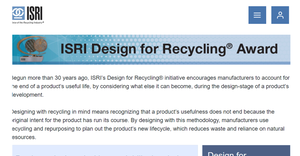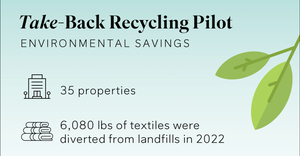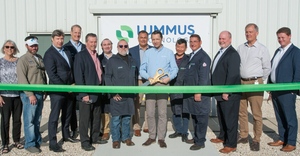Singapore pursues progressive waste handling practices.
Singapore recently played host to WasteMET Asia, a bi-annual conference focused on promoting waste industry development and modern waste practices in southeast Asia.
In many ways, Singapore hopes to hold itself up to other Asian nations, which fall into widely varying stages of economic development. While Hong Kong, Japan, Singapore, South Korea and Taiwan are relatively advanced in terms of their waste management policies and practices, most Asian towns and cities still rely on open dumps. According to the Asian Development Bank, only 10 percent of the region’s solid waste makes it to what the West would consider a properly engineered and managed landfill site.
Waste management in Singapore is semi-privatized, says Guah Eng Hock, chairman of the Waste Management & Recycling Association of Singapore in an e-mail interview. Public, commercial and industrial waste collection are fully privatized. Public waste companies are given sevenyear contracts, which are awarded based on what Hock describes as “an open, prequalified tendering process.”
Recycling in the country is limited and mostly handled by private companies.
“There are firm regulations governing waste management company behavior in Singapore, ” says Hock, “but [fewer] laws governing consumer and waste generator behavior. ” He adds that while some Asian countries have found ways to effectively implement consumer-focused waste laws, it’s still an issue fraught with “political costs, ” much as in the United States.
One of the biggest obstacles faced by waste handlers in Singapore is the simple lack of space. “Singapore is a small country with severe land constraints, ” says Hock. “Industrial land is allocated to companies based on their economic value-add and our industry tends to lose out. Thus, it’s very difficult to obtain industrial land to setup a waste management business.”
Nevertheless, Singapore is host to four waste-to-energy plants — two privately owned and two operated by the country’s National Environment Agency (NEA). The NEA also built and operates Singapore’s only landfill, located offshore on the tiny island of Pulau Semakau.
Another challenge is maintaining a suitable workforce. Singapore has very high per-capita income combined with an unemployment rate of less than 2 percent. Moreover, the government imposes a strict quota on the employment of foreign labor. “With a low unemployment rate and a not very attractive industry, we face a huge shortage of local workforce and lack of quota to employ foreign labor, ” says Hock. “The industry has had to quickly innovate and be more productive.”
It is doing that, he says, by automating as many of its waste handling processes as possible. Consequently, he expects rapid industry consolidation in the next 3-5 years. He says Singapore’s waste handling will continue to pursue more technologically advanced waste handling and diversion techniques and will strive to be a model for up-and-coming Asian countries. “We want to take a pragmatic approach toward waste management and recycling, ” says Hock. “We are an industry association and want to be working toward environmentally- friendly activities through a self-sustainable manner. ”
About the Author(s)
You May Also Like


